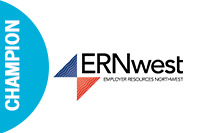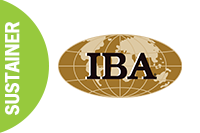HOTEL EMPLOYEES HEALTH AND SAFETY INITIATIVE FACT SHEET
Prepared by the Seattle Hotel Association
Download the HEHS Fact Sheet here.
Background and effective dates
The Hotel Employees Health and Safety Initiative (HEHS) was passed by Seattle voters as Initiative 124 on Nov. 6, 2016 and became law on Nov. 30, 2016, as Seattle Municipal Code 14.25.
The Seattle Office of Labor Standards issued administrative rules for HEHS on May 31, 2018; the rules go into effect on July 1, 2018. Administrative rules are legally binding and intended to clarify how the law works.
Please note that while the administrative rules have an effective date of July 1, 2018, the ordinance has been in effect and enforceable since Nov. 30, 2016. New clarifications and requirements included in the administrative rules become enforceable on July 1, 2018.
[expander_maker id=”1″ more=”Read more” less=”Read less”]
Who does HEHS apply to?
“Hotels” with 60 or more guest rooms must comply with Part 1, the section of Part 2 related to chemical hazards and Part 4 of HEHS. “Large hotels” with 100 or more guest rooms also must comply with the rest of Part 2 and with Part 3 of HEHS.
The definitions of “hotels” and “large hotels” as referenced in the ordinance are:
- “Hotel” means a hotel or motel, as defined in Section 23.84A.024, containing 60 or more guest rooms or suites of rooms. “Hotel” also includes any contracted, leased, or sublet premises connected to or operated in conjunction with the building’s purpose, or providing services at the building.
- “Large hotel” means a hotel containing 100 or more guest rooms or suites of rooms suitable for providing lodging to members of the public for a fee, regardless of how many of those rooms or suites are occupied or in commercial use at any given time.
HEHS contains four parts:
Part 1: Protecting Hotel Employees from Violent Assault and Sexual Harassment
Part 2: Protecting Hotel Employees from Injury (i.e. Chemical Hazards)
Part 3: Pay for Access to Affordable, Gold-level Standard Health care.
Part 4: Preventing Disruptions in the Hotel Industry
“Hotel employers” are subject to the law and “employees” and “hotel employees” are covered by the law. The ordinance defines them as:
- “Employee” and “hotel employee” means any non-managerial, non-supervisory individual employed by a hotel employer who:
- In any particular work week, performs at least two hours of work within the geographic boundaries of the City of Seattle for a hotel employer; and
- Qualifies as an employee entitled to payment of a minimum wage from any employer under the City of Seattle and/or State of Washington minimum wage laws.
- “Employee” and “hotel employee” include any individual (1) whose place of employment is at one or more hotels and (2) who is employed directly by the hotel employer or by a person who has contracted with the hotel employer to provide services at the hotel. Supervisory and confidential employees as defined under the National Labor Relations Act are not considered employees under this Chapter 14.25.
- “Hotel employer” means any person, including a corporate officer or executive, who directly or indirectly or through an agent or any other person, including through the services of a temporary service or staffing agency or similar entity, employs or exercises control over the wages, hours, or working conditions of any employee and who owns, controls, and/or operates a hotel in Seattle; or a person who employs or exercises control over the wages, hours, or working conditions of any person employed in conjunction with a hotel employer in furtherance of the hotel’s provision of lodging and other related services for the public.
Part 1: Protecting Hotel Employees from Violent Assault and Sexual Harassment
Hotel employers must:
- Provide a panic button to each hotel employee who works alone in a guest room at no cost to the employee. Panic buttons are defined in the law as “an emergency contact device carried by an employee by which the employee may summon immediate on-scene assistance from another employee, security guard, or representative of the hotel employer.”
- Place a sign on the back of each guest room door in a font size of at least 18 points informing guests of the law and notice of panic buttons. Signs must include the heading “The Law Protects Hotel Housekeepers and Other Employees From Violent Assault and Sexual Harassment,” a citation to Chapter 14.25, and notice of the fact that the hotel is providing panic buttons to its housekeepers, room servers, and other employees assigned to work in guest rooms without other employees present, in compliance with this Chapter 14.25.
- For five years: Record and retain all employee accusations against a guest for a report of violence and alert employees if an accused guest is staying at the hotel.
- For three years: Ban a guest if the employee provides a written statement made under the penalty of lying under oath or other evidence.
- Reassign the affected employee (upon request) away from the accused guest, allow the employee sufficient paid time to contact the police and consult with a counselor, and report (with the consent of the employee) an incident involving alleged criminal conduct by a guest to law enforcement.
Clarification in Final Rules:
- Paid time to contact police and provide a statement to police. An employee is owed sufficient paid time to contact the police and to provide a police statement or statements as requested or dictated by the police.
- Consulting a counselor or advisor. “Consult” means the act of seeking advice on immediate next steps in the wake of an event triggering the right for paid time as provided for by Seattle Municipal Code (SMC) 14.25.060(B). An employee is owed sufficient paid time to accomplish this purpose, which may vary from instance to instance and employee to employee. Immediate next steps include, but are not limited to, creating a safety plan with an advocate, seeking advice from an attorney about whether to file a police report, or speaking with a trusted friend about whether to seek professional counseling.
- Scope of paid time. The right to paid time for activities protected by SMC 14.25.060(B) does not include and is in addition to other paid time to which an employee may be entitled for medical treatment and/or for recovery from an incident of violence, including assault, sexual assault and/or sexual harassment.
- Other paid leave. Employers may not subtract hours paid pursuant to SMC 14.25.060(B) from any other paid leave to which the employee is entitled (by law or by employer policy); including Seattle’s Paid Sick and Safe Time Ordinance, SMC 14.16.
Part 2: Protecting Hotel Employees from Injury
Hotel employers must:
- Protect employees from chemical hazards by requiring information to be readily available to employees regarding hazardous chemicals in their work areas.
- Take appropriate steps to protect employees from the harmful effects of chemicals, including controlling the use of chemicals and preventing dangerous employee contact and exposure.
Clarification in Final Rules:
Hotel employers must meet the minimum requirements of the Washington Industrial Safety and Health Act in creating a safe workplace, controlling chemical agents, protecting employees from hazards of contact with chemical agents, and providing employees information on hazardous chemicals.
Large hotel employers must:
- Limit housekeeper workloads to no more than 5,000 square feet of room space in an eight-hour workday.
- When an employee performs 10 or more “Strenuous Room Cleanings” in an eight-hour day, reduce the maximum floor space by 500 square feet for the tenth room and thereafter. Strenuous Room Cleaning is defined as cleaning of (1) a checkout room or (2) a stayover room that includes a cot, rollout bed, pet bed or crib.
- Reduce assigned square footage workloads in a prorated manner if an employee works less than an eight-hour workday.
- Provide time-and-a-half for the entirety of an employee’s shift if he or she exceeds the square-footage requirement.
Clarification in Final Rule:
- Housekeeping services subject to the square footage cleaning requirements include any services or tasks that are required to prepare or maintain the cleanliness of the physical guest room before, during, or after a guest’s stay.
- Housekeeping services do not include preventative or as-needed maintenance activities such as repair, replacement, and general maintenance of appliances, electronics, furniture, doors, windows, carpets, walls, plumbing, and other fixtures.
- Housekeeping services do not include tasks associated with preparing already-made beds for sleep, maintaining inventory (e.g. mini-bar, toiletries), or inspecting housekeeping services performed in a guest room.
- Voluntary consent is required. An employer shall not schedule or require an employee to clean more than the maximum square footage unless an employee requests or voluntarily consents to do so. To have an employee’s valid consent, the employer must inform the employee of the total amount of additional square footage to be cleaned in advance of the employee’s acceptance of the assignment.
- An employee has a right to refuse an employer’s request to clean more than the maximum square footage.
- An employee shall not be entitled to the additional compensation when the employee exceeds the maximum square footage because one of the following occurs prior to the end of an employee’s scheduled shift:
- The employee requests to leave work because of an unforeseeable emergency, illness, or for an activity protected by law;
- Operations cannot begin or continue due to threats to employees or property, or due to the recommendation of a public official that work cannot begin or continue;
- Operations cannot begin or continue because public utilities fail to supply electricity, water, or gas, or there is a failure to the public utilities, or sewer system; or
- Operations cannot begin or continue due to natural disaster, weather events, or events that would cause the employer to violate a law, statute, ordinance, code, administrative rule, and/or governmental executive order.
Part 3: Pay for access to affordable, gold-level standard health care
This section only applies to “large hotels” and their “low-wage employees” who work full time according to the following definitions:
- “Low-wage employee” means an employee whose total compensation is 400 percent or less of the federal poverty line for the size of the employee’s household.
- “Full time” means at least 80 hours in a calendar month.
Large hotel employers must pay, by the 15th day of the month, each full-time, low-wage employee the greater between $200 in additional wages or salary (adjusted annually for inflation), or the difference between (1) the monthly premium for the lowest-cost, gold-level policy available on the Washington Health Benefit Exchange and (2) 7.5 percent of the amount by which the employee’s compensation for the previous calendar month exceeds 100 percent of the federal poverty line.
A large employer will not be required to pay additional wages or salary if they enroll full-time, low-wage employees with health and hospitalization coverage at least equal to the gold-level policy* on the health exchange and charge no more than 5 percent of gross taxable earnings in premium costs.
- *”Policy” is defined as an insurance policy available on the Washington Health Benefit Exchange that would provide coverage to the employee and, if the employee has any spouse and dependent children, to the employee’s spouse and dependent children in addition to the employee.
Clarification in Final Rule:
- A hotel employer is required to pay low-wage employees additional compensation, unless they meet an exception to the requirement:
- An employer is not required to pay additional compensation if the employee has enrolled in a qualifying policy that was offered by the employer and the employer is making payments towards the employee’s policy. This exception applies during the employee’s waiting period if the employer is making payments toward the policy during the waiting period.
- An employer is not required to pay the additional compensation when the employer is paying toward an employee’s policy under a multiemployer health and welfare benefit plan established under section 302(C)(5) of the Labor Management Relations Act of 1947, 29 U.S.C. §401-531 (i.e. Taft-Hartley Act).
- For an employer to qualify for the exception to pay additional compensation, the employee cannot pay more than 5% of his or her monthly gross taxable earnings toward payment for the policy, including the cost of coverage for any enrolled spouse or dependent children.
Part 4: Preventing Disruptions in the Hotel Industry
This section pertains to the buying and selling of hotels and employee retention requirements.
Outgoing hotel employers must:
- Provide the incoming hotel employer the name, address, date of hire and employment occupation classification of each Retention Hotel Worker within 15 days after the execution of the transfer document. Retention Hotel Worker is defined as any employee (1) whose primary place of employment is at a hotel subject to change in control, (2) who is employed directly or via contract by the outgoing hotel employer and (3) has worked for the outgoing hotel employer for at least one month prior to the execution of the transfer document.
- Post notice of the change in control with contact information and the effective date of the change at the hotel within five business days following the execution of the transfer document.
Incoming hotel employer must:
- Maintain a preferential hiring list of Retention Hotel Workers and hire from that list for six months after the hotel is open to the public;
- Offer employment to Retention Hotel Workers in writing, keep the offer open for at least 10 business days, and retain the written verification of the offer;
- Retain each Retention Hotel Worker for no fewer than 90 days and not discharge any worker without just cause;
- Provide and retain written performance evaluations for each hotel worker at the end of the 90-day transition employment period;
ADDITIONAL REQUIREMENTS
Notice and Posting Requirements
Hotel employers must give written notice to each current employee and to each new employee at the time of hire about the employee’s rights. The notification must be given in languages spoken by 10 or more employees.
Record Retention Requirements
Hotel employers must meet record keeping requirements, which include each employee and former employee’s regular hourly rate of pay for each work week. Large hotel employers must retain, for each day of employment as a housekeeper, the total square feet of guest room floor space cleaned, the number of strenuous room cleanings performed, the number of hours worked and the employee’s gross pay for that day. Most records must be retained for three years.
Retaliation Prohibited
A hotel employer, or any other person, shall not interfere with, restrain or deny the exercise of any right protected by the initiative. In addition, a hotel employer cannot take any adverse action against any employee because the employee has exercised in good faith the rights protected.
There is a rebuttable presumption of retaliation if a hotel employer takes an adverse action against an employee within 90 days of the employee’s exercise of rights.
Private Right of Action
Employees are eligible for a private right of action regardless of civil penalties. Any person claiming injury from a violation of this initiative may file a lawsuit against the employer. Upon prevailing, he or she may be awarded costs, reasonable attorneys’ fees and expenses including lost compensation and other damages, reinstatement, declaratory or injunctive relief and prejudgment interest.
Penalties
Each work day a hotel employer is in violation of the initiative is deemed a separate violation and will be assessed a penalty of at least $100 per day per employee, and not more than $1,000 per day per employee, in an amount determined by the court. These penalties are exclusive of any damages recovered by or awarded to any employee.
Civil penalties must be distributed as follows: 50 percent to the Office of Labor Standards; 25 percent to the aggrieved employee(s); and 25 percent to the person bringing the case.
Enforcement Agency
The Seattle Office of Labor Standards may investigate charges alleging violations of this initiative. The Director of the Office of Labor Standards is authorized and directed to promulgate rules consistent with this initiative.
Most Ordinance Requirements Can be Waived in a Collective Bargaining Agreement
The requirements of this ordinance, with the exception of the portion protecting employees from violent assault and sexual harassment, may not apply to any employees covered by a bona fide, written collective bargaining agreement, if such a waiver is set forth in clear and unambiguous terms.
RESOURCES
Hotel Employees Health and Safety Initiative (SMC 14.25)
Office of Labor Standards (OLS) HEHS homepage
HEHS Questions & Answers prepared by OLS
OLS Employer’s Guide to Record Keeping
OLS HEHS Model Notice of Employee Rights (English)
NOTE: Seattle has several other local ordinances that establish requirements for employers. Please visit the OLS website at www.seattle.gov/laborstandards to confirm compliance with all local employment laws. The Seattle Office of Labor Standards also has staff to answer questions.
Seattle Office of Labor Standards
206-256-5297
www.seattle.gov/laborstandards
DOWNLOAD A PDF OF THIS FACT SHEET HERE
[/expander_maker]



















![[Class, May 20] ServSafe Manager, Kent](https://wahospitality.org/wp-content/uploads/2018/07/CALEND1-150x150.png)







